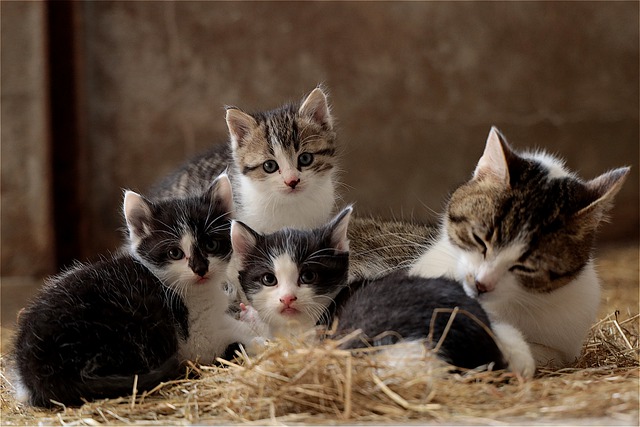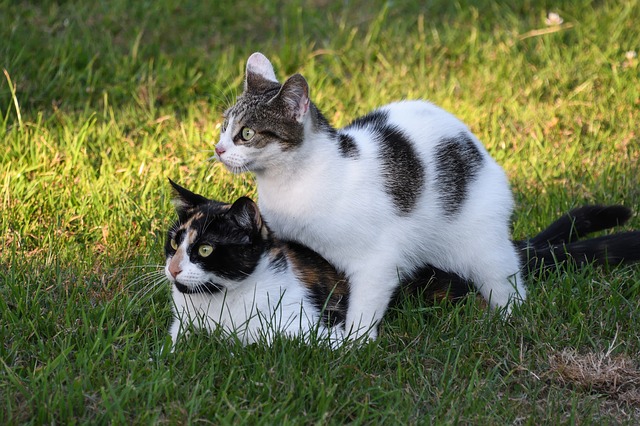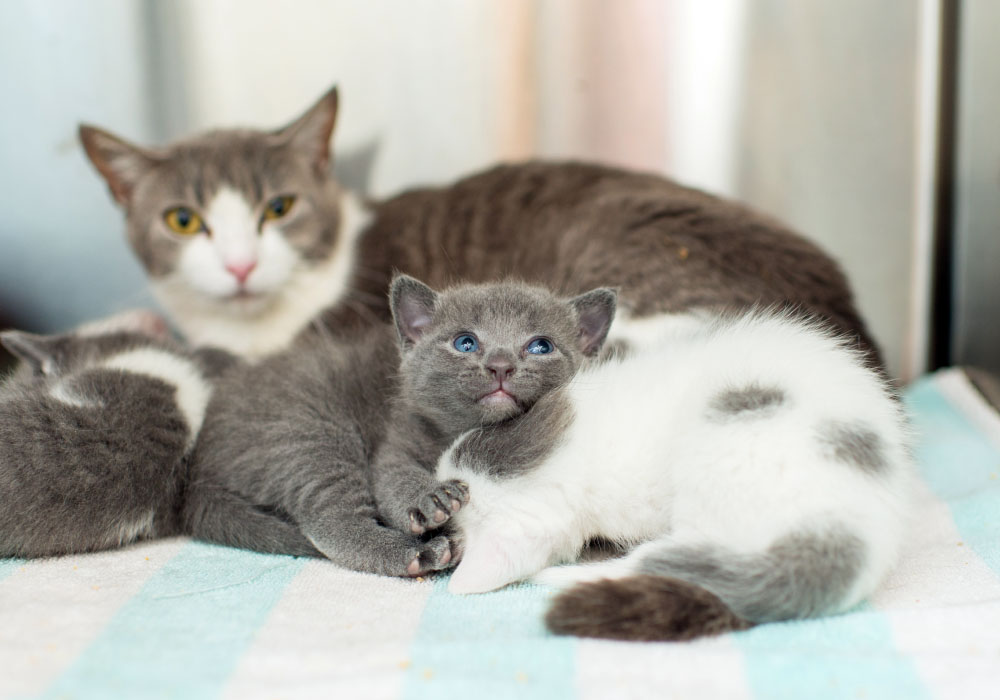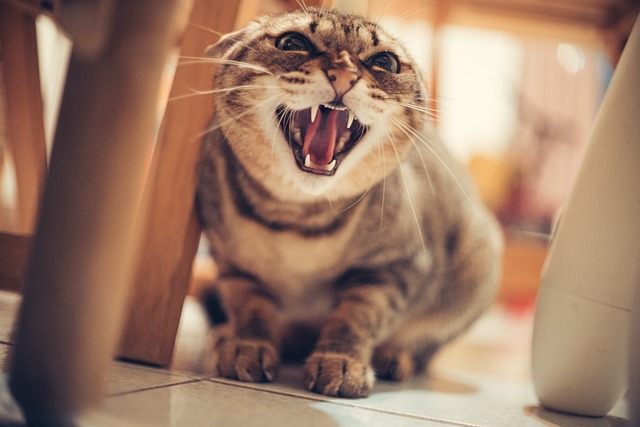The meow of a cat can be cute and even entertaining.
But when a cat is in distress, the wails can be depressing. The shrieking wail from a cat in pain will strike a raw nerve in the heart of any pet parent.
You will want to do whatever you can to alleviate the pain.
A good example of such a scenario is when mama cat gets separated from her kittens.
She will probably start crying for her kittens.
But is there another explanation or is the only possibility?
Keep reading to find out.
Mother Cat Will Cry When She Misses Her Kittens

Like any other mammal, mama cat has a maternal attachment to her babies and the separation period won’t be easy.
So, whether the kittens died or they were taken to a new home, the mother will most likely respond by moving around the house crying—as if looking for them.
In addition to crying, the cat will start acting strangely towards you, other pets and even towards stuffed animals around the house.
She may suddenly get aggressive towards other pets, so you may want to be extra vigilant in case you need to intervene in a fight.
It can be quiet draining emotionally to see your cat cry but don’t let your love for her cloud your judgment.
Cats are not like humans and she just a little time to get over it.
In fact, cats are only attached to the kittens for a couple of weeks and then are eager to let them go as soon as she weans them.
In the wild, cats have to learn to fend for themselves so they can’t hang around their mother into adulthood. This is one of the traits that have remained in domesticated cats for hundreds of years.
Related Posts:
Mother Cat Might Cry When On Heat

It’s easy to assume that mama cat is crying for her kittens but sometimes, she could just be crying because she is back on heat.
A cat’s cycle lasts two weeks and once she gets back on heat, she may start crying and restlessly move around the house. This moaning is usually a “call” to potential mates.
Luckily, moaning is not the only sign of a cat on heat, so you can check for other signs to know for sure whether she is crying for her kittens or she is on heat again.
Some of the other signs to look for include restlessness, grooming excessively, occasionally sticking her butt in the air and moving her tail sideways (mating position), and wanting to get outdoors even if she is an indoors cat.
Related Posts:
Do Female Cats In Heat Get Attracted To Male Humans?
Do Cats Stay in Heat After Mating?
How Long Does a Male Cat Stay in Heat?
What to Do About It

It is advisable not to separate the kittens from her mother too soon.
Mother cats needs to breastfeed her kittens for a couple of weeks and then start weaning them at 10-12 weeks.
Once the kittens are weaned, the mother will start detaching from her kittens, which is nature’s way of preparing them to be independent.
In fact, after a couple of months, mother cat will start growling at her kittens.
So, if you are patient to let nature takes it course, the mother cat will eventually detach from her kittens and will not be as emotionally affected when they finally get permanently separated.
That said, there are some scenarios where you have no choice but to separate them sooner, which means you need a solution for the crying mama cat.
Here are a couple of things you can do to help the mother cat:
I. Keep her mentally stimulated with toys
The first thing you can try is giving her toys to play with.
The idea is to keep her preoccupied so that she doesn’t fixate on the missing kittens.
Just to be sure she takes interest in the toys, buy a couple of new ones that she isn’t used to.
You can then play around with her for as long as possible.
The mental stimulation will revive her spirits and she might forget about wailing for her kittens.
II. Give It Time
It is said that time heals all wounds and this is true for cats who are crying for their kittens. Just give your cat time to get over it.
If you waited for the kittens to be weaned before you separated them from the mother, she will try to seek around the house for them and cry for them but this will only last for a couple of days.
Obviously, if you removed the kittens before they were 10 weeks old, the ailing and seeking might persist for longer. This is why it’s a good idea to wait until the kittens are at least 10 weeks old for you to separate them from their mother.
It isn’t easy to watch your cat cry for her kittens for days but you just have to weather the storm.
It is a good thing to find the kittens a home where they will be loved and cared for so that you don’t feel guilty.
It is just a matter of time before the wailing stops and your cat gets back to her jovial and cheeky self.
III. Spaying
Spaying is the best long-term solution. A cat’s natural response to changes within the body is wailing.
That’s one of the reasons why a cat on heat will keep wailing—although the main reason is she is calling for a mate.
Spaying solves the problem from two angles:
On one hand, the cat won’t get on heat, so she won’t need to make excessively loud wails.
On the other hand, she won’t get pregnant, so she won’t have to deal with the pain of separating from her kittens.
Some people think spaying is cruel but in reality, not spaying the cat and then having to separate her from her kittens might be crueler.
Besides, spaying is done by the vets, so you can rest assured your cat will be handled professionally.
Spaying will not only help your cat but also help prevent feline overpopulation.
Closing Thoughts
In summary, mother cats cry for their kittens because they miss them.
As soon as they discover the kittens are missing, they instinctively think they are lost and they start crying and looking for them around the house.
You can shorten this “mourning” period by allowing her to raise her kittens until she weans them.
At this stage, it will be easier for her to let go. You can try to keep her preoccupied with toys and games until the moment passes.
Also, make sure to rule out other factors when she starts crying. For example, you want to check to ensure she is not crying because she is back on heat.

Hi! I am Eleanor Price. I started this website after my cat, Louie, almost died from a case of botulism (a type of food poisoning often caused by bacteria that grow on food items). Turned out that my cat’s diet was the problem. I have made it my duty to provide the best information and recommendations about everything cat lovers need to know about their felines’ health and wellbeing. My goal is to find the most informative content on anything feline-related and share it with fellow hardworking kitty lovers.

